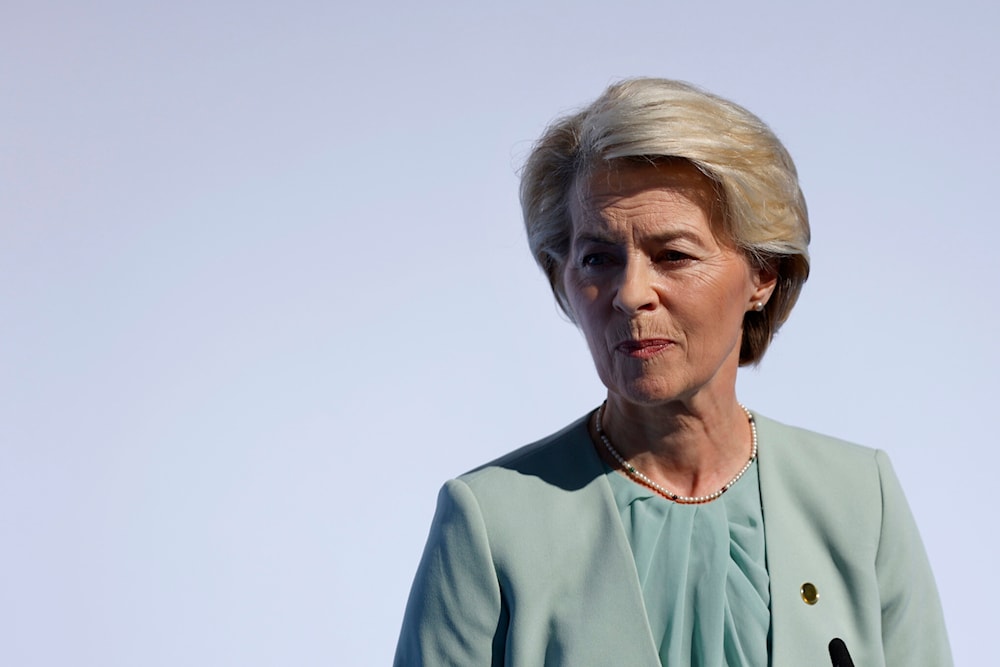Von der Leyen: EU to announce 12th sanctions package on Russia
The EU chief states that the new restrictions are set to include additional import and export bans in an attempt to strengthen the price cap on Russian oil.
-

President of the European Commission, Ursula von der Leyen speaks to the media as she arrives at the Europe Summit in Granada, Spain, Thursday, Oct. 5, 2023. (AP)
In her address to members of the Ukrainian parliament, the Verkhovna Rada, EU Commission President Ursula von der Leyen confirmed that the EU is expected to announce its 12th package of sanctions on Russia next week.
The EU chief stated that the new restrictions are set to include additional import and export bans in an attempt to strengthen the price cap on Russian oil.
Without providing further information, she added that the EU intends to suggest new “tough measures” for third-country companies avoiding current sanctions, and that 100 Russian individuals will be facing personal sanctions as well.
Read more: Borrell says EU sanctions on Russia 'working', but at what cost?
“For too long, many in Europe thought that we could trade with Russia and integrate it into Europe’s security order. But it has not worked. And it will not work as long as Russia’s actions are driven by delusional dreams of empire,” she said.
Von der Leyen also relayed that Brussels “will continue to apply maximum pressure against Russia, until the end of the aggression and until Ukraine has re-established a just and lasting peace.”
Waning effectiveness
The situation is not how it used to be at first, since many EU members are not agreeing to new sanctions.
One of the most prominent and outspoken would be Hungary. Hungarian Foreign Minister Peter Szijjarto said in an interview with RIA Novosti last week that his country would veto the 12th sanctions package by the EU if it targets Russian gas, oil, or nuclear energy.
"The sanctions policy simply doesn't work. Sanctions might hit Russia and might cause harm to Russia, but they definitely cause a lot of harm to the European economy, to the European countries. And if a sanctions policy causes more harm to those who are introducing them compared to those against whom it has been targeted, then what is the reason to continue?" he asked.
According to Szijjarto, any restrictions on those who have done good to Hungary by "saving the lives of Hungarians, for example through making it possible that we could buy vaccines," or contributing to its energy supply will be opposed.
Read next: Hungary calls halt of Nord Stream probe 'outrageous and scandalous'

 3 Min Read
3 Min Read









